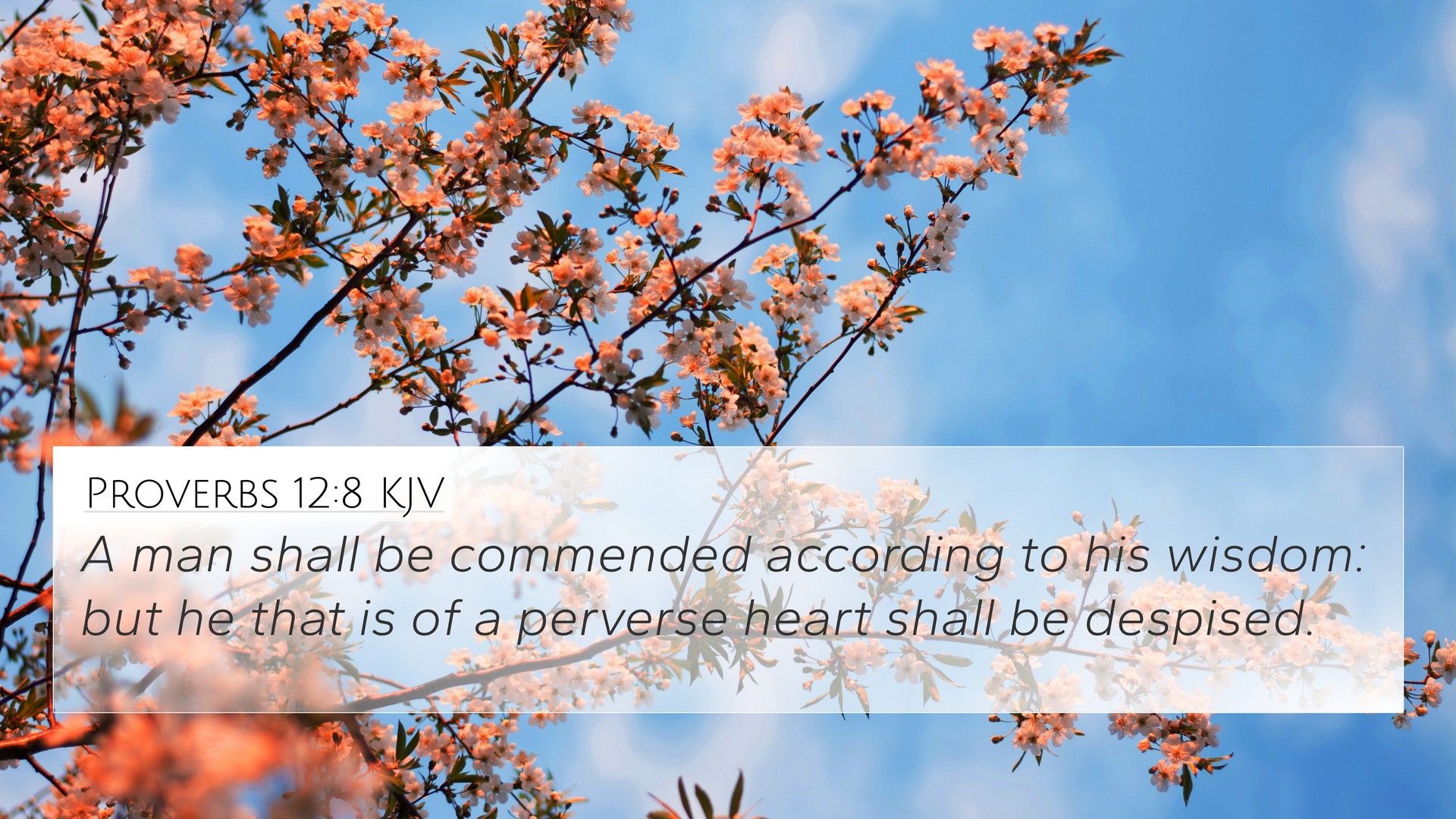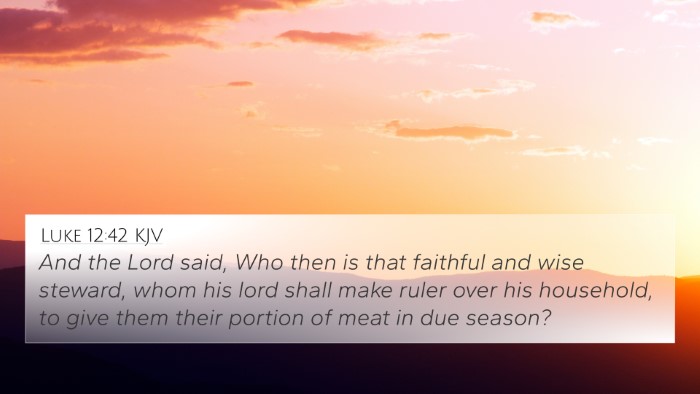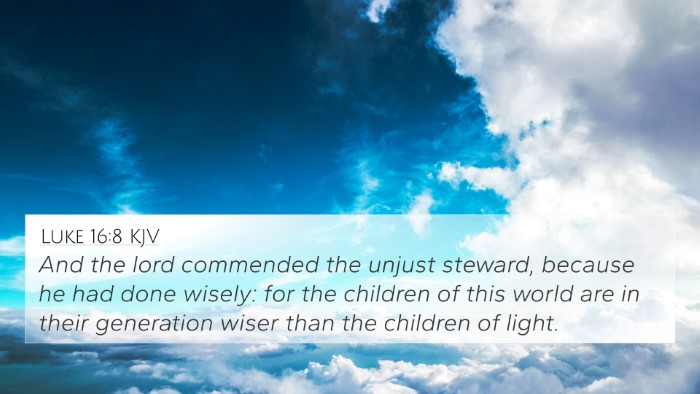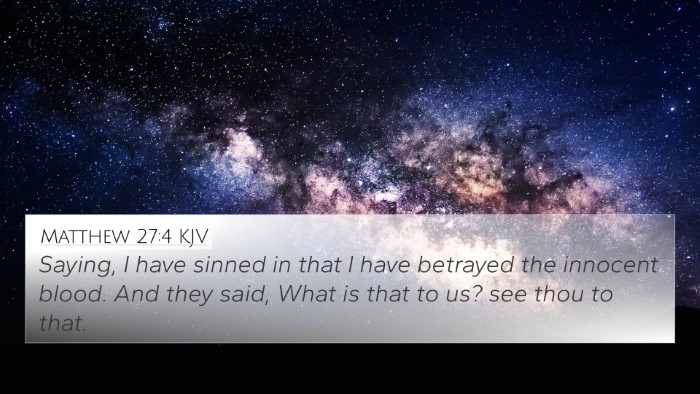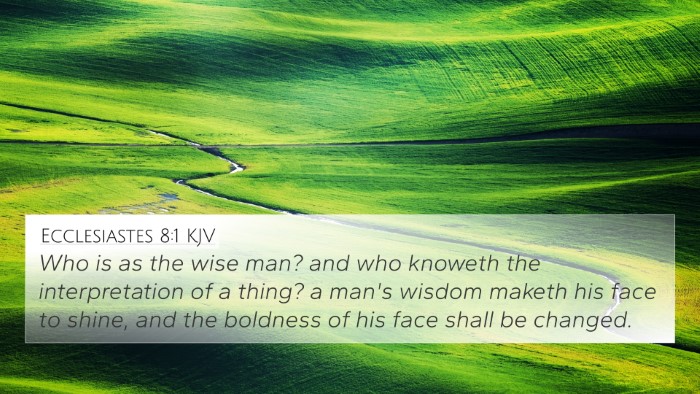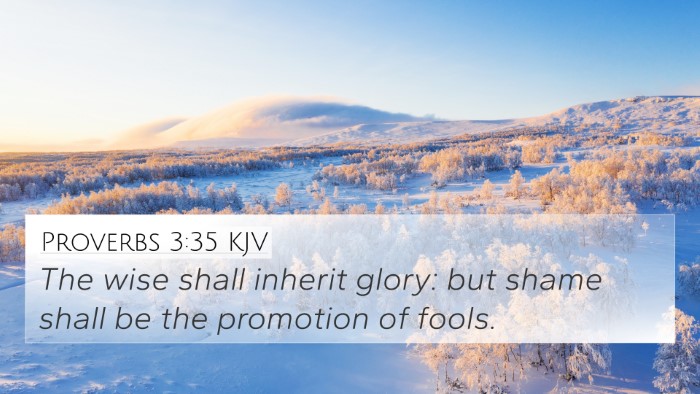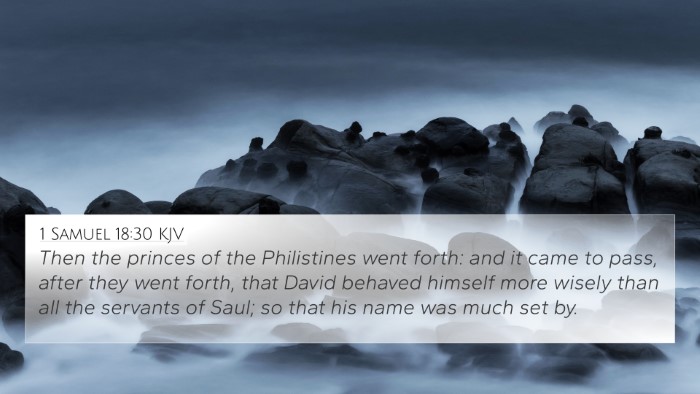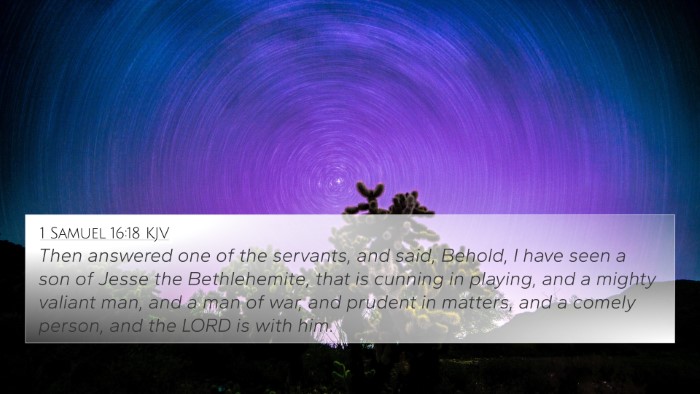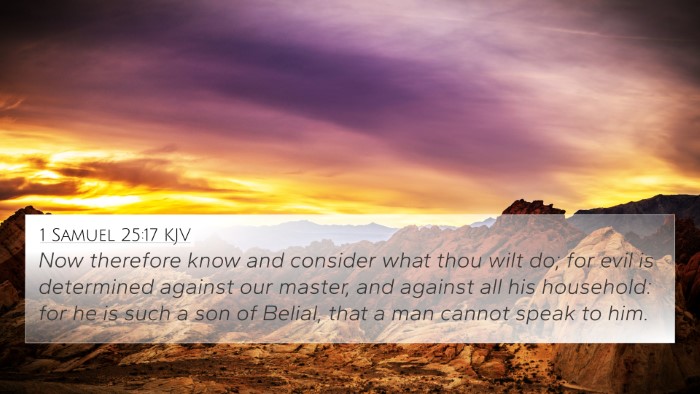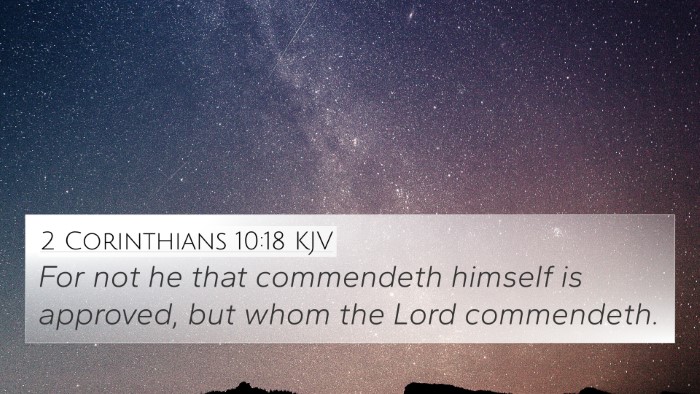Understanding Proverbs 12:8
Proverbs 12:8 states, "A man shall be commended according to his wisdom: but he that is of a perverse heart shall be despised." This verse serves as an important reminder about the nature of wisdom and the moral evaluation of individuals based on their inner character. The insights from prominent commentaries shed light on the deeper meanings of this passage.
Summary of Insights
Wisdom and Commendation: According to Matthew Henry, the verse emphasizes that recognition and commendation come to those who demonstrate wisdom through their actions and thoughts. Wise individuals gain respect and admiration from others, signifying that wisdom is a valuable trait socially and spiritually.
The Nature of the Heart: Albert Barnes notes that the contrast between the wise man and the one with a "perverse heart" highlights moral character's significance. Those who harbor wicked thoughts and intentions ultimately suffer disgrace, indicating that integrity and purity of heart are crucial for esteem within the community.
Inner Character vs. Outer Appearance: Adam Clarke stresses that while outward appearances may deceive, true character is revealed over time. The verse indicates that one's true nature, whether wise or corrupt, manifests through actions and choices, leading to public judgment and personal consequences.
Connections Between Bible Verses
This verse can be cross-referenced with multiple other passages that enhance understanding and show the thematic connections in the Bible:
- Proverbs 1:7: "The fear of the Lord is the beginning of knowledge: but fools despise wisdom and instruction." This verse establishes the foundation of wisdom based on reverence for God, correlating with Proverbs 12:8's commendation of wise individuals.
- Proverbs 4:7: "Wisdom is the principal thing; therefore get wisdom: and with all thy getting get understanding." Here, the pursuit of wisdom is emphasized as essential, which ties back to the commendation mentioned in Proverbs 12:8.
- Proverbs 10:8: "The wise in heart will receive commandments: but a prating fool shall fall." This contrasts the outcomes of the wise and the foolish, aligning with the rewards and despising found in Proverbs 12:8.
- James 3:13: "Who is a wise man and endued with knowledge among you? let him shew out of a good conversation his works with meekness of wisdom." This provides New Testament validation of the connection between true wisdom and its manifest results, paralleling Proverbs 12:8.
- Matthew 7:16: "Ye shall know them by their fruits. Do men gather grapes of thorns, or figs of thistles?" This verse reinforces the concept of evaluating individuals based on their character and actions.
- 1 Samuel 16:7: "...for the Lord seeth not as man seeth; for man looketh on the outward appearance, but the Lord looketh on the heart." This underscores the focus on inner character, which is crucial in Proverbs 12:8.
- Ecclesiastes 7:5: "It is better to hear the rebuke of the wise, than for a man to hear the song of fools." This reflects the value of wise counsel, which is honored in Proverbs 12:8 while contrasting it with folly.
Thematic Bible Verse Connections
The themes presented in Proverbs 12:8 connect to broader Biblical teachings regarding wisdom, character, and societal values. Below are important themes and ideas explored in conjunction:
- Wisdom and Understanding: Numerous verses throughout Proverbs stress the necessity of wisdom and understanding as foundational for living a virtuous life.
- The Consequences of Sin: Frequently noted in Scripture, Proverbs 12:8 serves as a reminder that those who harbor evil intentions will ultimately face disgrace and disdain.
- Judgment and Recognition: The notion that people are recognized by their deeds is a consistent theme throughout the Bible, affirming that true wisdom leads to honorable recognition.
Comparative Bible Verse Analysis
Engaging in a comparative study of Bible verses related to Proverbs 12:8 can yield further insights. For instance, contrasting Proverbs 12:8 with Proverbs 29:27, which states, "An unjust man is an abomination to the just: and he that is upright in the way is abomination to the wicked," reinforces the distinction between the wise and the morally corrupt.
In the New Testament, passages such as Romans 2:6 also echo similar ideas through the lens of ultimate judgment according to one's deeds, reinforcing the theme of moral accountability found in Proverbs 12:8.
Cross-Referencing Bible Study Methods
To facilitate a deeper understanding of biblical truths through cross-referencing verses:
- Use a Bible Concordance to find related terms and themes across scriptures.
- Explore Parallel Translations of the Bible to see how different wording affects meaning.
- Utilize Bible Study Guides that emphasize cross-referencing methods to contextualize verses like Proverbs 12:8 with broader narratives.
Conclusion
The exploration of Proverbs 12:8 reveals significant insights about wisdom's value and the relationship between inner character and external recognition. Through thematic connections and scriptural cross-referencing, readers can appreciate the richness and coherence of biblical teachings related to wisdom, moral character, and the consequences of actions.
As you study this verse and its connections, consider the importance of reflecting on your character and choices, as wisely guided by Scripture.
